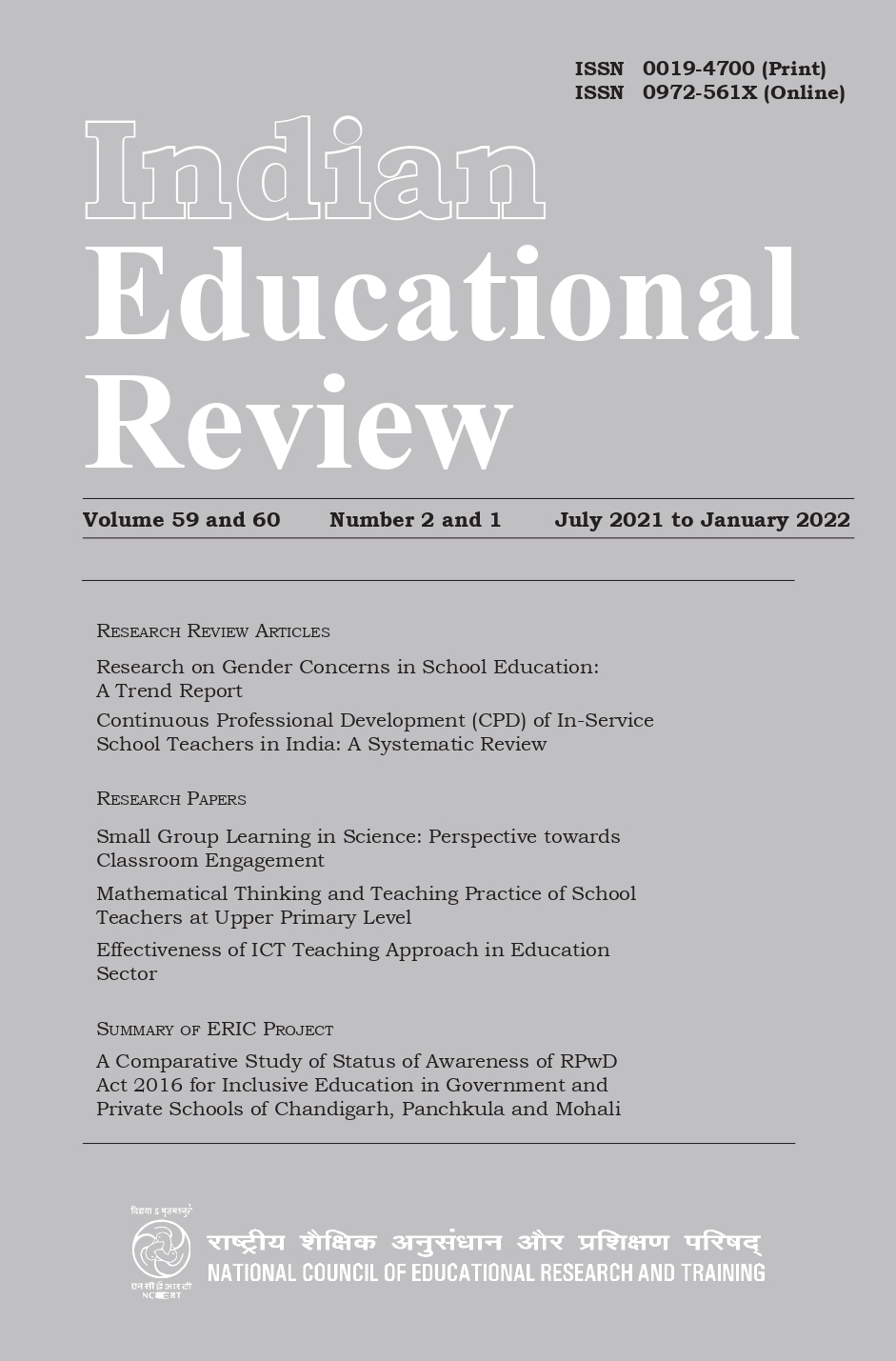Continuous Professional Development (CPD) of In-Service School Teachers in India : A Systematic Review
Published 2022-01-31
Keywords
- Continuous Professional Development,
- National Education Policy 2020
How to Cite
Abstract
A systematic review of the articles, research papers, books, policy documents and practices related to Continuous Professional Development (CPD) in India reflects that CPD is a continuous process of developing, maintaining and documenting a teacher’s professional skills. Through CPD, teachers get a chance to enhance their knowledge, skills, competence and expertise. The independent India has provided this facility of CPD for school teachers in various ways as reflected in its policies, and practices as reviewed and given in this paper. It has also been found that the COVID-19 situation in India expedited the rapid shift in CPD practices from face-to-face to online learning. Accordingly, mobile screens replaced blackboards and electronic documents replaced notebooks. However, to keep abreast with the changes and prepare their students for the future, teachers will have to further develop themselves continuously. They need a lot of things like latest subject knowledge, strong understanding, good analysis and ability to use digital skill, and practical application of knowledge to qualify as good teachers. Realising the importance of CPD for teachers, National Education Policy 2020 suggested that each teacher is expected to participate in a minimum 50 hours in-service annual training for them. Programmes like NISHTHA, MOOCs, OERs of NCTE, DIKSHA provide training opportunities to a large segment of school teachers. Special training programmes were also conducted for in-service teachers so they can use platforms like Google Classroom, Zoom, Google-meet and Webex to continue the online teaching for students. To prepare efficient teachers, teachers need to be constantly top-notch in their profession. It is only possible, if they can sustain their continuing professional development. Accordingly, all related reflections given in this paper have been elaborated and reflected on the basis of the systematic review.

